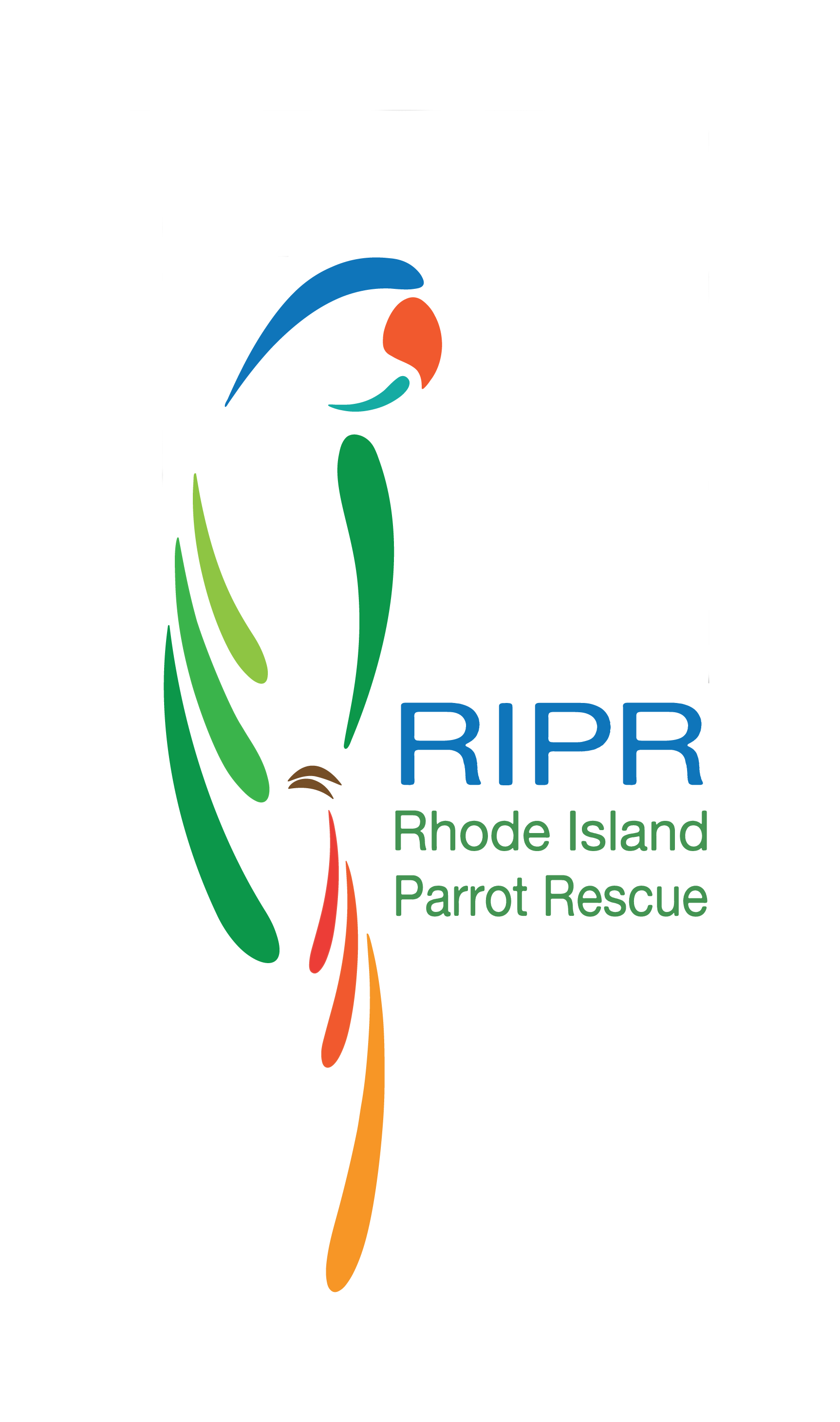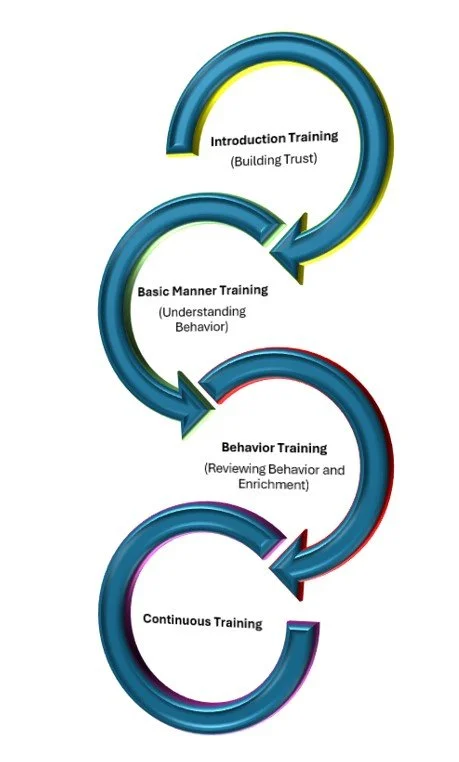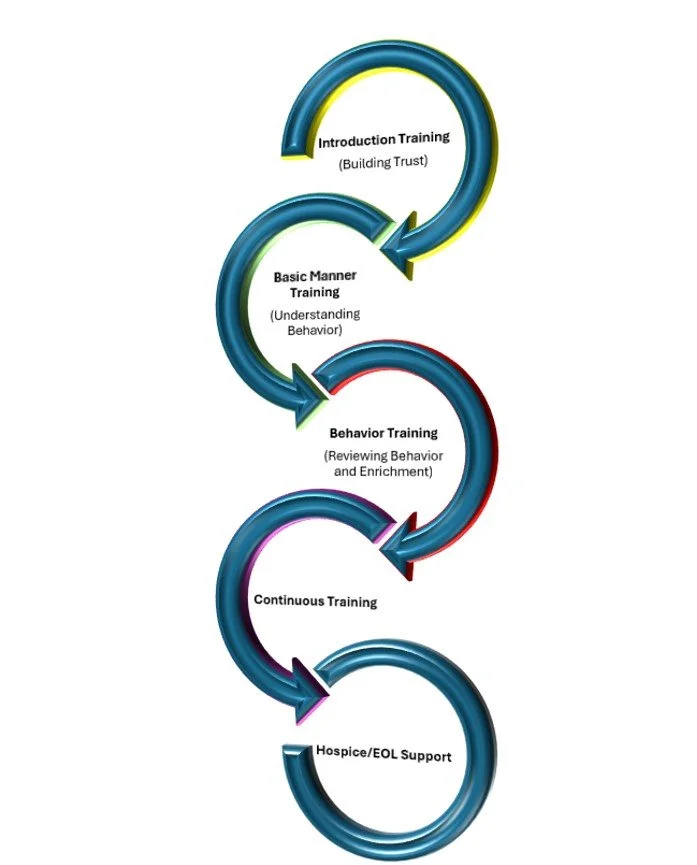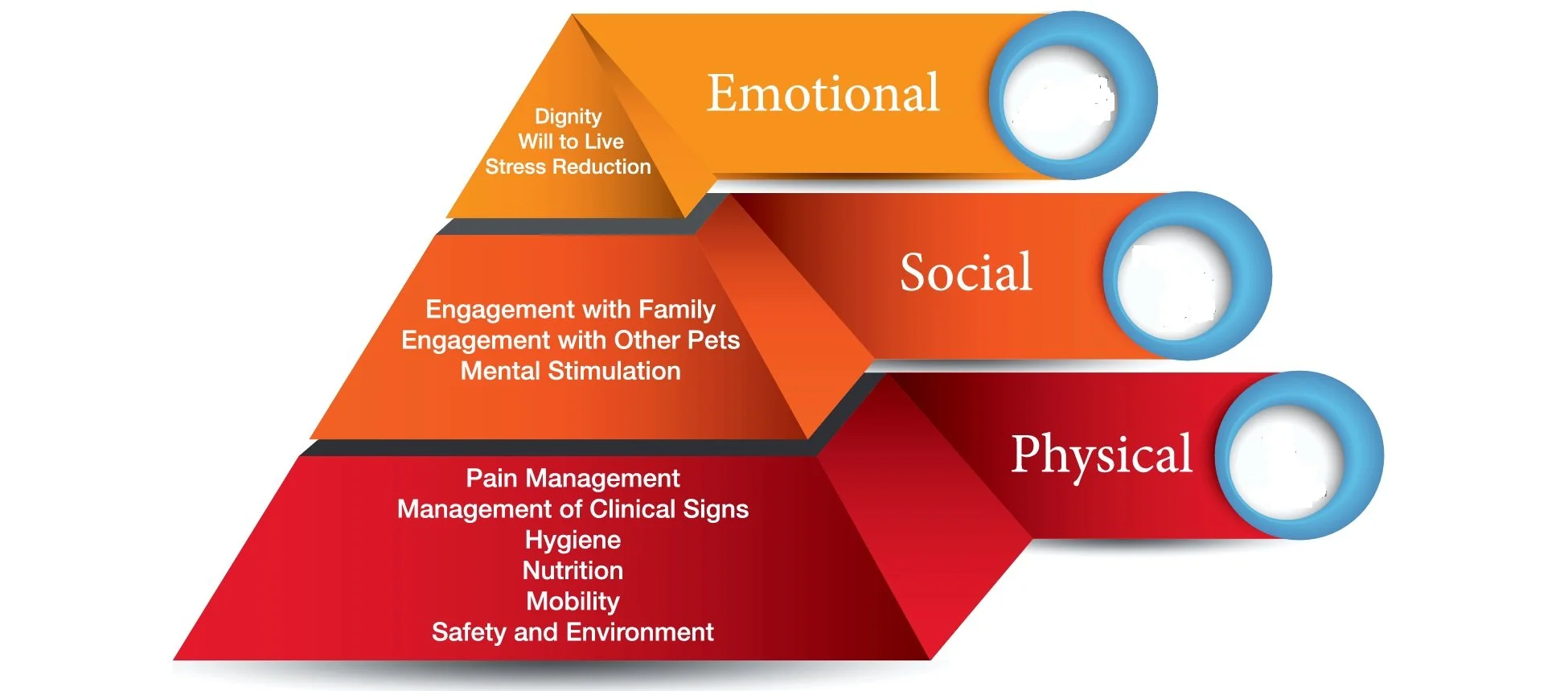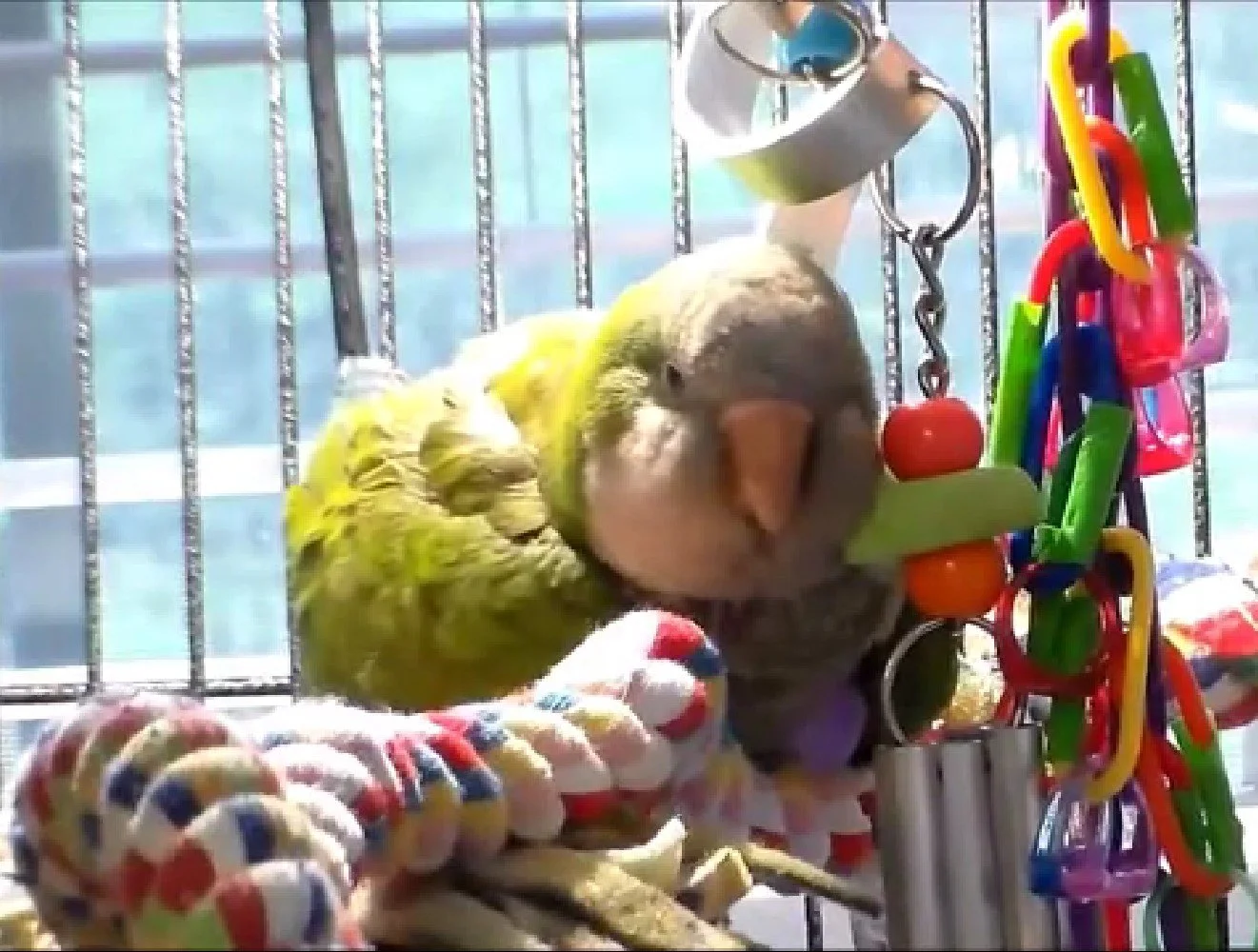Hospice/End-Of-Life Compassion Care for Companion Birds
By Sheila S. Blanchette, IAABC-CPBC, UW-AAB
My blogs usually focus on training methods that foster a trusting and respectful relationship with your companion bird. When you introduce a companion bird to your family, you might encounter unexpected lifestyle changes, such as stepping on birdseed with your bare feet, sharing your meals with your companion bird, or coming home early because your companion bird needs to be put to bed. Whether you have one or several birds, these feathered family members impact your daily routine. As a responsible guardian, you might worry about their longevity, wondering whether you're providing the best quality of life and whether you're the right guardian for them.
As a Certified Companion Bird Behavior Consultant and Trainer, my aim is to help people deepen their understanding and strengthen the wonderful bond they share with their companion birds. I offer training that provides ongoing support throughout a bird’s entire life. While reflecting on the training, I realized I missed an important session.
Training Offerings
The one topic we seem to avoid relates to our own hearts. There will be a time when we must provide our companion birds with the comfort and dignity they deserve at the end of their lives. This companionship aspect often remains unspoken, yet it is a profound responsibility we hold.
My heart has been broken many times by losing an animal; during those moments, I felt lonely. People can say they're sorry, but what I truly need is someone to talk to about the emotions, the grief, and the loss.
It's understandable that many of us prefer not to think about or talk about death or discussions related to the end of life. It's a difficult topic that touches us all in different ways. Death discussion should not be a taboo topic. The more we have these open discussions, the more we can be honest and understanding during emotional prognosis.
Did you know? There are Death Cafés, either virtual or in-person, where people come together to openly talk about Death. It might sound a bit unusual, but I’ve been to a couple myself, and I found them quite fascinating.
Nathalie offers a virtual Death Café every month - https://www.eventbrite.com/cc/life-death-cafe-community-by-nathalie-1490969
End-of-Life Compassionate Animal Care Doula
I resumed my education and attained certifications in hospice and end-of-life care, companion animal doula services, grief support group facilitation, and ordained ministry.
Many regard the term ‘doula’ as referring solely to a non-medical professional who offers guidance and support to new mothers; however, a doula can also be a non-judgmental, holistic supporter who creates and sustains a space that fosters perspective, enhances meaning, and provides comfort during the dying process.
The role of the Hospice and End-of-Life Compassionate Animal Care Doula encompasses delivering emotional support and practical guidance to ensure that animals experience a dignified and peaceful transition, as well as providing the individual with guidance through the emotions and gravity of decisions or outcomes.
Having someone to turn to can truly make a difference when evaluating your beloved companion bird's well-being.
I aim to offer more comprehensive support that provides emotional backing throughout a bird’s entire lifetime.
Including Hospice/EOL Support
Hospice/Quality of Life
Our beloved companion bird is truly part of the family. One day, the Avian Veterinarian may have to gently explain that your cherished bird might be facing a serious illness or condition with a difficult prognosis. The Avian Veterinarian may explain that your companion bird, at that time, is not in pain or suffering, and you can bring the companion bird home.
“You have probably heard the term “quality of life” in conversations with your family veterinarian or people close to you. Assessing your pet’s quality of life, which is subjective and highly dependent on your animal’s disease process, their personality, and your personal beliefs, is difficult.” 2
Companion Bird Hospice is a caring program dedicated to supporting animals in the later stages of a progressive, life-limiting illness or disability. It lovingly addresses their physical, emotional, and social needs, ensuring they feel comforted and cared for during this time.
Animal Care Hospice Pyramid(3)
I want to share my experience through Hospice and Quality of Life care. During a visit to the veterinarian, Gussy, our beloved adopted 20-year-old Quaker parakeet, was diagnosed with severe arthritis and blindness. Gussy was clearly in pain, and ongoing medication would be needed to ensure her comfort and well-being for the rest of her life.
Gussy Hospice Support
After numerous discussions, I had to honestly admit I was not prepared to decide Gussy’s future. I decided on the hospice care route. I rearranged Gussy’s cage, adding softer perches and easier access to food and water.
Gussy was made comfortable and pain was managed for a year, and she enjoyed sleeping with her bell.
Gussy with her bells
Over time, I started to see that Gussy was eating less and was less interested in interacting with others; her medical condition seemed to be worsening. My husband and I had heartfelt conversations about ensuring Gussy’s dignity, and the most difficult part was choosing a date.
It may feel strange or even morbid to “plan” your pet’s death, but keep in mind that the one last gift you can give to your friend is a peaceful, loving death. You get only one chance to say goodbye, and if you take the time to plan out the details, you can assure yourself that your friend dies with the most love and comfort possible. You can also ensure that you get to say goodbye in the way that you need to. You may feel guilty and think you are “giving up” or “playing God.” This is very common. Remember that it is the disease that is killing your pet, and you are protecting your companion from needless suffering.” 4
At the time, I did not have someone to contact. The only advice I was given was that “Gussy will tell you when it is time”.
I noticed our lovebird spending more quality time with Gussy lately. At first, the lovebird wasn’t really interested in Gussy when we brought her home. But as Gussy's health started to get worse, our lovebird began to seek Gussy out more and more. It seemed like the lovebird had a better sense of Gussy’s situation than we did.
Gussy with her bells and our lovebird
As I wrap up Hospice/EOL Compassion Care for our beloved Companion Birds, part 1, I want to open up this important topic and invite everyone to join the discussion. It's okay to feel overwhelmed, but remember, you are never alone—there are others out there who understand and are ready to walk this journey with you. You don't have to carry all of the weight of grief by yourself during these emotional times.
In part 2 of this Hospice/EOL Compassion Care for our beloved Companion Birds, we will discuss end-of-life decisions, grief, and learning to forgive yourself. I leave you this thought:
“When that difficult time comes, and it is almost inevitable as long as we own pets, we believe in the humane relief from suffering provided by euthanasia. Yes, it is an awful decision to have to make for another living being, but we each must remember a couple of things. We have no reason to think that animals fear death. We absolutely know they fear pain, discomfort and distress. As the stewards of our pet’s lives, we must put their comfort ahead of our own emotions. Our primary goal must be the happiness of the animal. We have the ability to prevent the extended suffering that can come from debilitating disease or the sometimes relentless deterioration of old age. This decision is never made easily but when there is no hope for improvement and before an animal has been drained of all the spark of life, it is a humane and loving choice.”5
References/Footnotes:
1. What is a Doula - https://healthlaw.org/wp-content/uploads/2020/04/WhatIsADoula_4.16.2020.pdf
2. How Will I Know It's Time | In-Home Euthanasia
4. Saying Good-Bye to Your Beloved Pet: A Supportive Guide Through Euthanasia, Dana Durrance, M.A, 2006
5. End of Life Care, Dr. McMillan, Old North End veterinary Clinic, Vet2Pet Mobile
Copyrighted. Blog posts may be used as guidelines for the proper care of your parrot. Not intended for medical or legal advice. Please consult with a licensed avian veterinarian regarding the medical care and wellbeing of your exotic pets.
